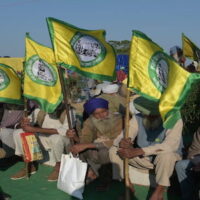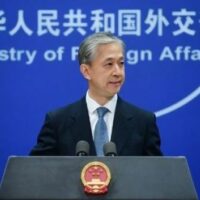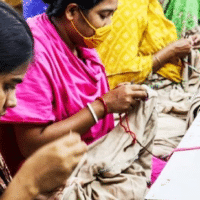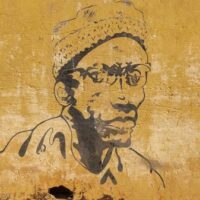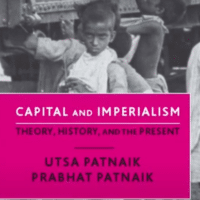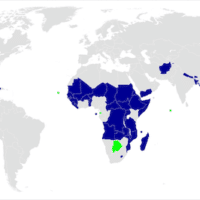-
End vaccine apartheid
Vaccine costs have pushed many developing countries to the end of the COVID-19 vaccination queue, with most low-income ones not even lining up. Worse, less vaccinated poor nations cannot afford fiscal efforts to provide relief or stimulate recovery, let alone achieve Agenda 2030.
-
A resource guide to political prisoners in the U.S.
A growing list and guide to materials highlighting a few of the many of the political prisoners who have been incarcerated in the United States many still fighting for liberation.
-
Cuba: The first country in the world to vaccinate children under 12
Cuban President Miguel Díaz-Canel announced Aug. 31–in a special meeting of scientists and health professionals–that by November, 92.6% of Cuba’s entire population will be fully vaccinated with the three-shot process.
-
India’s data harvest
New platforms and data analytics are helping big agribusiness take over Indian agriculture. Ordinary farmers are losing out, writes Bikrum Gill.
-
U.S. escalates threats to Ethiopian and Eritrean sovereignty
The U.S. and its Western European allies have been trying to pass some kind of resolution censuring Ethiopia that will lead towards military intervention, but so far, they have not succeeded. Why? Because China and Russia have been blocking it. They say that this is Ethiopia’s internal affair, and we shouldn’t engage in any undue interference. Everyone is saying the same thing they have been saying all along.
-
The United States is the greatest Scofflaw
But the United States government is not alone here. It has several close allies, such as Canada, which is the home to 60 per cent of the world’s mining companies. Canada’s great interest in what lies beneath the soil of the Americas allows it to treat those who live above that soil with the greatest disdain.
-
China calls for investigation into U.S. massacres of civilians in Afghanistan
On Wednesday, September 1, Chinese Foreign Affairs Ministry spokesperson Wang Wenbin said that the massacres of civilians committed by the US military in Afghanistan during 20 years of occupation and war should be fully investigated.
-
Multinational Corporations and COVID-19: Intellectual property rights vs. human rights
The multilateral trading system anchored by the WTO is not confined to cross-border trade in physical goods.
-
What I learned from 10 years teaching Chinese students about gender
The author, a teacher at a college in East China, reflects on the successes and challenges of her “Gender and Media” class.
-
How Amilcar Cabral shaped Paulo Freire’s pedagogy
Frantz Fanon’s influence on Paulo Freire’s thought is well known, but the Brazilian educator also drew considerably from Amílcar Cabral, the revolutionary intellectual from Guinea-Bissau.
-
Afghanistan withdrawal is a shock to the Israel lobby
Military occupations excite violent resistance throughout history. The U.S. has given up the fantasy of transforming Afghanistan. This removes Israel’s cover for its occupation and is generating panic among Israel’s friends.
-
Imperialism then and now: Capital relocation, inequality, encroachment and protracted crisis – Part 3/3
Prabhat Patnaik shows that as capital is relocated, real wages do not rise, inequality widens, and global demand is suppressed. The system remains in protracted crisis; Keynesianism in the North alone is no solution. The struggle is everywhere.
-
Allow least developed countries to develop
The pandemic is pushing back the world’s poorest countries with the least means to finance economic recovery and contagion containment efforts. Without international solidarity, economic gaps will grow again as COVID-19 threatens humanity for years to come.
-
Assata Shakur: The making of a revolutionary woman
From Assata’s story, we are able to learn what it means to be motivated by a deep love for the people and the struggle for freedom—and what it means to embody a determined and unbreakable spirit in the face of crackdowns and government repression designed to stifle and destroy the movement.
-
Biology as Ideology at 30
‘The increased atomization of society and associated political economy of capitalism justifies the logic of reductionism’. – Richard Lewontin
-
China’s top court says grueling ‘996’ work schedule illegal
The Supreme People’s Court published a set of labor-related disputes to clarify legal standards of working hours and overtime wages.
-
Supreme Court ended eviction moratorium, but pandemic has shown road map for fighting back
The Supreme Court callously ended the CDC’s eviction moratorium, but the pandemic has already shown the most effective way to fight back: direct actions.
-
On the road to dictatorship?
Where there is smoke, there is fire, goes the popular saying. Most Brazilians and world public opinion know that Brazil is governed by a man of fascist convictions. Bolsonaro always praises the torturers of the military dictatorship implanted in Brazil in 1964 and regrets that “at least 30,000 subversives” were not shot.
-
Harm reduction guided by the goal of the abolition of prisons and capitalism: an interview with former Direct Action member and ex-prisoner Ann Hansen
I am active with the Prison for Women (P4W) Memorial Collective which has been fighting for a Memorial Garden at the site of the now closed Prison for Women, and a Gallery where the women’s art and writing can be seen in order to give some context to their lives and deaths. We also agitate to improve prison and parole conditions as a harm reduction tactic in order to alleviate some of the suffering, but always within the context of the abolition of prisons and capitalism as the goal, the light that guides us through the darkness.
-
Nicaragua at a revolutionary crossroads and in imperialist crosshairs
U.S. attack on Nicaragua targets its Black community.




